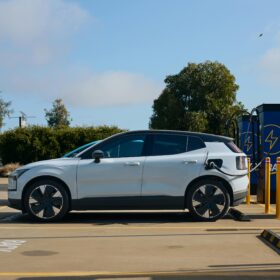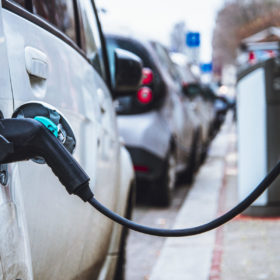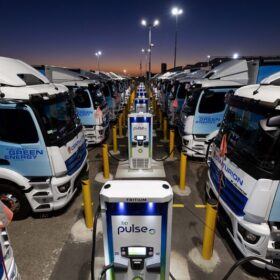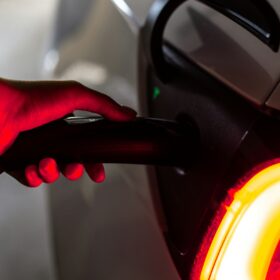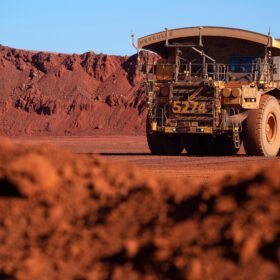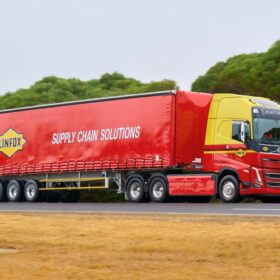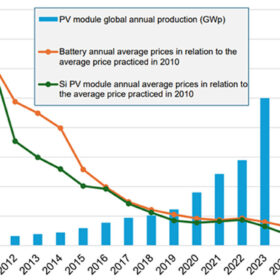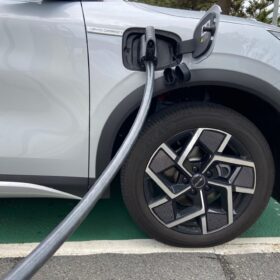Key fixes for Australia, New Zealand to achieve net zero
New figures show Australians bought a record 85,000 home batteries in the first half of 2025. That’s almost three times more than the year before, and nearly fivefold growth since 2022.
Advancing circular solutions for EV battery waste in Asia and the Pacific
The Asia-Pacific region is becoming a showcase for regional solutions. As electric vehicles rapidly gain traction, the region must confront a dual challenge: managing the environmental and health risks of end-of-life EV batteries, while actively pursuing the economic and technological opportunities of a circular economy.
Freight provider powers up off-grid truck charging site
Transport and logistics operator Centurion has reached a major milestone in its electrification journey with a new electric truck charging site powered by a 2.2 MW rooftop solar system and a 3.44 MWh battery energy storage system now active at its depot in Perth’s eastern suburbs.
How EVs and electric water heaters are turning cities into giant batteries
As the electrification of transport and heating accelerates, many worry the increased demand could overload national power grids. In Australia, electricity consumption is expected to double by 2050.
BHP inks deals to explore battery tech opportunities
Mining giant BHP has struck early-stage agreements with two of the world’s largest battery manufacturers to explore the application of battery technology and electrification across its global operations.
Tesla unveils 80 kW solar canopy at new EV charging site
Tesla has unveiled its largest electric vehicle charger solar canopy in Australia, pulling the wraps off an 80 kW PV array alongside the Pacific Highway in northern New South Wales.
Volvo reveals Australian-made plans for electric trucks
Swedish truck and bus manufacturer Volvo Group has confirmed it will begin building heavy-duty electric trucks in Australia next year after announcing what it says is the largest order to date for battery-electric trucks in this country.
Kite Magnetics nets $3.6 million to scale up production of EV tech
Victorian startup Kite Magnetics has secured a $3.6 million investment from one of the world’s biggest producers of battery-grade lithium chemicals to scale up production of a patented nanocrystalline magnetic material designed to improve the performance of electric motors and generators.
Falling Li-ion battery prices mirror solar photovoltaics trends: Is there a role for second-life batteries before recycling?
Lithium-ion batteries are everywhere, powering everything from consumer electronics to electric vehicles, residential PV storage systems, and, more recently, mitigating curtailment in large-scale wind and solar power plants. EVs are driving large-scale demand for Li-ion batteries which will result in substantial volumes of spent batteries in the near future.
Drivers hedge bets with charger drama holding EV uptake back
Range anxiety has long been seen as the main obstacle stopping drivers from going electric. But range isn’t the real issue. The average range of a new electric vehicle is more than 450 km, and top models offer more than 700 km per charge. By contrast, the average car is driven about 33 km per day in Australia as of 2020.
